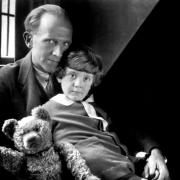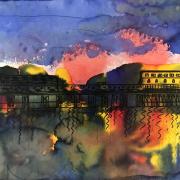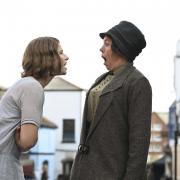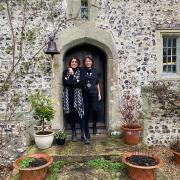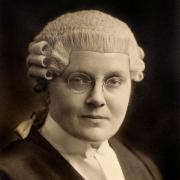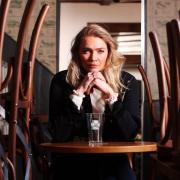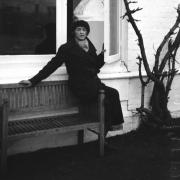Bestselling local author Kate Mosse has written a book celebrating the 50th anniversary of Chichester Festival Theatre. Here she tells Jenny Mark-Bell her reasons for taking on the project...
The world-renowned Chichester Festival Theatre had rather unlikely beginnings: it was born from an idea given to a local man by a television programme.
In 1959 founder Leslie Evershed-Martin, a former mayor of Chichester, watched a programme about the Tyrone Guthrie Theatre Festival in Stratford Ontario, Canada. Inspired, he decided to create a theatre for the community and financed by its citizens.
In a spectacular coup, Evershed-Martin managed to persuade Laurence Olivier (not yet a Sir) to become the first artistic director for the architecturally ground-breaking theatre in Oaklands Park.
Despite some initial local resistance to the project he managed to raise �105,000 from locals who were encouraged to give whatever they could afford. The 1400-seat theatre, designed by architects Powell and Moya with a revolutionary ‘thrust’ stage, opened on 3 July 1962.
There were three productions in that first year – The Chances by John Fletcher, The Broken Heart by John Ford and Chekhov’s Uncle Vanya. The latter featured Artistic Director Laurence Olivier as Astrov. A production of the same play directed by Jeremy Herrin opened this year’s festival.
Chichester Festival Theatre is now celebrating half a century of world premieres and career-defining performances, and a new book, described by its author Kate Mosse as "a love letter" to the theatre, is published this month.
Chichester Festival Theatre at Fifty was the brainchild of Artistic Director Jonathan Church and Executive Director Alan Finch, who approached Kate Mosse for two reasons: "I am a Chichester girl born and bred and I have a long family association with the theatre. They asked me if I would like to do it if I had the time, which of course I didn’t, but I would have hated anyone else to do it."
Kate’s aim was for the book to be a celebration of the theatre and its history: "What makes Chichester Festival Theatre so special is its place in the development of British and international theatre since the war. For me everything about the narrative of the theatre is about dates and chronology." Thus, each of the five decades is given its own section, with an introduction about the founding – and funding – of the theatre.
Local author Kate, whose best-selling novels include Labyrinth and Sepulchre, has led her life alongside the theatre. Remarkably, they are even the same age. When Kate was studying for her A-levels at Chichester High School for Girls she worked front-of-house as an ice cream seller and usherette, her first paid job, but the connections extend even further: "My very wonderful dad, who sadly died this time last year, was the theatre’s company secretary between 1965 and 1998. He was a local lad who returned to the area with his wife and young child (me). He knocked on the door and told them that he had been an actor in London and was now a lawyer.
"I was in a privileged position as a little girl. People didn’t take children to the theatre so often in those days and I got to go to first nights all dressed up in my red velvet dress and black patent shoes."
Many of her former colleagues are still at the theatre now, says Kate. She returned to her old workplace from 1998-2001, this time as Administrative/Executive Director. "They said ‘we are so proud of you!’ I believe very strongly that everyone who works there feels a sense of ownership of the theatre. It was, after all, built by and for local people. Everyone bought their place at the table."
Kate worked alongside picture researcher Diane Goodman: "There is no proper archive at the theatre, so she had to track down every single image. She has been in touch with people all over the world. Because of her, many renowned photographers have donated their pictures free of charge."
The two women discovered that they too shared a historical connection. "Diane had married, so her name was different, but I said I was sure I recognised her. She told me we had been Girl Guides together." The theme of intertwined histories runs throughout the book. Helena Michell, daughter of Keith Michell who was artistic director from 1974-1977, assisted with picture research. Her daughter and Kate’s son are now in the Youth Theatre together.
Another local writer, Tim Bouquet, undertook to do the interviews. Tim provided edited transcripts of the 35 interviews – "So the book was very much made between the three of us."
The first production Kate remembers well was The Italian Straw Hat with Sarah Baddel. "I have apologised to my mum for this, but I said at the time that she was the most beautiful woman I had ever seen! I know Sarah now and apparently she had a very small part. Researching the book I discovered that the production had been put on at three weeks’ notice because One Man, Two Guvnors had to be cancelled. As a six-year-old I remember it being perfect."
Another memory is of the theatre’s restaurant, in a white washboard building. Everyone sat around large tables eating Danish open sandwiches which they ordered before the play. "As a child I didn’t like rye bread so two of the men who worked there would bring in a couple of slices of white bread, just for me."
Kate has many of her own anecdotes; did she use them in the book? "Yes, but only in the way I used everyone else’s. In a sense, I am the 36th interviewee."
The book is published by Unbound, a company that aims to put publishing into the hands of authors and readers. Authors pitch their projects and interested readers pledge funds. "It means that all the people who support the project can pledge their interest before publication, meaning that the company prints the number of copies that they need." Both the environmental and the community fundraising aspects appealed to Kate – and in another coincidence one of Unbound’s founders, Dan Kiernan, hails from Chichester himself.
The funding of the book is a neat bookend to the project – an echo of the early days of the theatre: "In my first chapter I say how much the building of the theatre was hand to mouth – if people didn’t donate money, it wouldn’t be built. The echo in the publication, with Unbound’s crowd funding, is rather lovely."
Chichester Festival Theatre at Fifty, �28, will be published on 8 June. Available from unbound.co.uk or Chichester Festival Theatre’s Box Office on 01243 781312.
Kate Mosse’s next novel, Citadel, is published in September by Orion.



